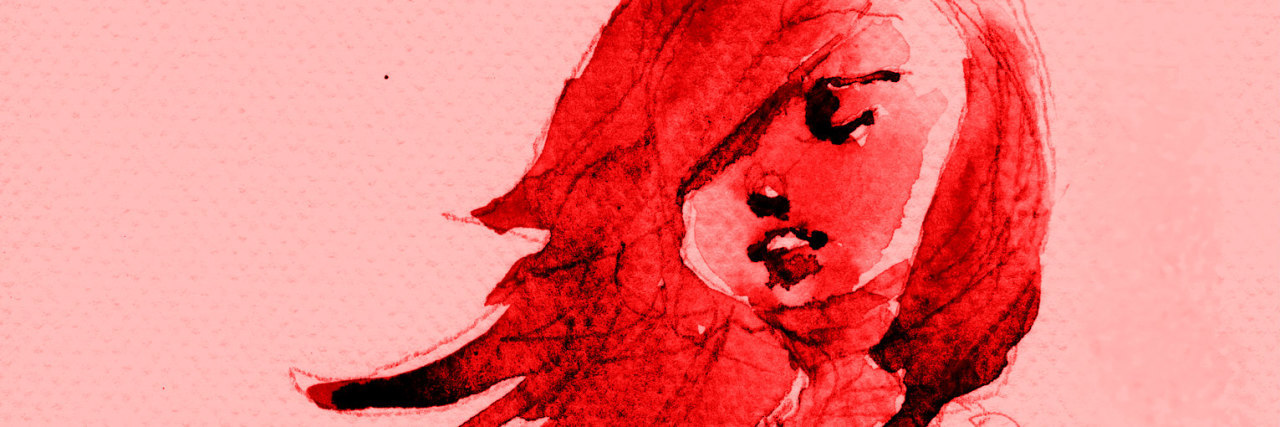I don’t know what caused it, but one morning, a few weeks ago, I woke up tired of feeling guilty and ashamed of my feelings. Perhaps it was that very feeling of sheer exhaustion that did it — maybe I had utterly worn myself out from all the berating and self-loathing I had felt for days on end leading up to this. Whatever the cause, one thing became clear that morning not too long ago:
I have never been on my own side, and for the first time in my life, I realize I need to be.
What no one tells you when you finally wake up to the emotional abuse you lived with as a child and adolescent — when you finally own the fact that it was never your fault and you never deserved it, when you finally accept that you really were good, lovable and enough, that you are those things now — is that along with the newfound feelings of freedom and strength will come anger and grief.
I am not typically an angry person. It takes a lot to get me truly upset — and even more if you actually want to hear about it. But this past year, my therapist has gently encouraged that perhaps anger is what I need the most right now, as I confront my own anxiety and depression alongside my life narrative. That concept felt so foreign to me at first. In moments when I should have felt anger towards how my parents treated me, all I could feel was sadness or emptiness. But I think, back then, just a few months ago, I still blamed myself for what they did. Now that I know — really know — the abuse wasn’t my fault, I feel angry. I feel rage, deep in my bones, strong enough to make my heart pound non-stop, to make me want to scream, smash something, run forever.
I’m angry the adults who were supposed to love me made me feel so alone, so broken, so unwanted. I’m angry there were people in my life — teachers, youth ministers, coaches, neighbors — who knew and saw that things weren’t quite right in my family, but kept silent, to my knowledge. I’m angry I felt like it was my fault for so damn long.
This anger feels right… but I don’t know what to do with it.
With that anger also comes grief. I grieve for the little girl who spent her life constantly trying to prove she was worthy of love, striving to make herself “better” and “enough,” to fix herself so that maybe her parents would love her. She always believed it was her fault, you see. She thought if she could just try harder, if she could play by their rules, then they’d be a happy family and she would finally feel at home somewhere. But they always changed the rules. Nothing she did was ever enough. And she blamed herself.
I grieve for the love I didn’t know but now know I deserved. I grieve for the childhood, confidence, self-esteem and security I lost, or never really knew. I grieve for the ache of homesickness I’ve felt for the home I’ve never known.
There are days I feel good, strong, hopeful. I finally know that none of the abuse was ever my fault, and that I really am good, strong, beautiful and worthy of love. But there are also just as many days when the anger and grief overwhelm me. I know I need to feel them in order to process my narrative, and to heal from all the pain I’ve endured. But I wish I could just stay in the good feelings.
There’s a poem by Jelaluddin Rumi, though, that reminds me that this process of being on my own side — of acknowledging the pain inflicted on me, that it was never my fault, and that I am good — is a journey, one that means holding and honoring both the good feelings and the hard ones:
This being human is a guest house.
Every morning a new arrival.
A joy, a depression, a meanness, some momentary awareness comes as an unexpected visitor.
Welcome and entertain them all!
Even if they are a crowd of sorrows,
who violently sweep your house
empty of its furniture,
still, treat each guest honorably.
He may be clearing you out for some new delight.
The dark thought, the shame, the malice, meet them at the door laughing and invite them in.
Be grateful for whatever comes,
because each has been sent
as a guide from beyond.
Getty Images photo via Archv

